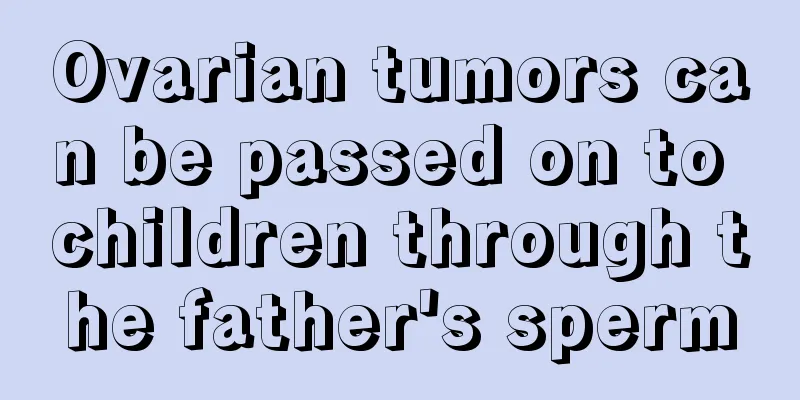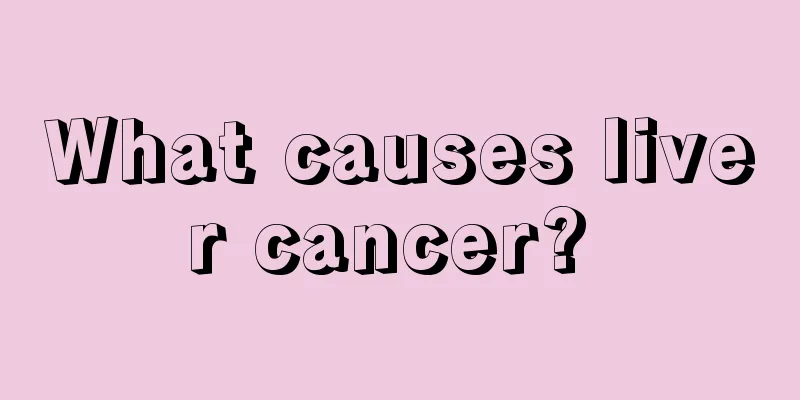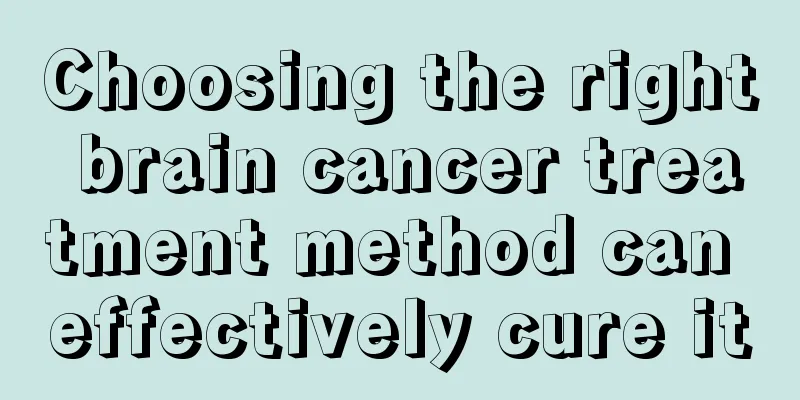Ovarian tumors can be passed on to children through the father's sperm

|
When someone in the family has an ovarian tumor, the family members are sad, and the biggest concern is whether the ovarian tumor is hereditary. Tumor experts say that ovarian tumors are indeed hereditary. If there is an ovarian tumor in the family, the probability of others suffering from ovarian tumors is much higher than that of ordinary people. Is ovarian tumor hereditary? Let's learn about it together below! Regarding the question of whether ovarian tumors are hereditary, a large amount of data proves that the risk of ovarian tumors in families with ovarian tumors increases, generally 70 times that of families without ovarian tumors. If one relative is sick, the risk will increase to 5%, and if two relatives are sick, the risk will increase to 7%. Suffering from other tumors, such as breast cancer, rectal cancer, uterine cancer, etc., may also increase the risk of ovarian tumors. Therefore, we must face the high-risk population of ovarian tumors. From the perspective of genetic epidemiology, ovarian tumors are divided into three categories: 1. Sporadic ovarian tumor: refers to the situation in which no ovarian tumor or other tumors related to it are found in the second generation blood relatives (including brothers and sisters, children and grandparents on both sides) in the ovarian tumor family. 2. Familial ovarian tumor: refers to a family with two or more first- or second-generation blood relatives suffering from ovarian tumors. 3. Hereditary ovarian tumors, specifically referring to a family of clustered ovarian tumors that manifest as autosomal dominant inheritance, and there may also be other types of cancer. This type is usually called hereditary ovarian tumor syndrome. The characteristic of hereditary ovarian tumor syndrome is early onset. The average age of onset of general ovarian tumors is 58 years old, while the average age of onset of hereditary ovarian tumors is 52 years old. It is a hereditary disease caused by a major gene abnormality in the body and manifests as ovarian tumors. There are many genes involved, and the specific gene has not yet been fully determined. In fact, hereditary ovarian tumors are relatively rare. About 7% of ovarian tumor patients have a positive family history, and those who truly have hereditary ovarian tumors are less than 1% of the total number of ovarian tumor patients. However, having a family history of ovarian tumors is a high-risk factor after all, and it is absolutely necessary to strengthen vigilance. |
<<: Can ovarian tumors be passed on to newborn babies?
>>: What are the sequelae of ovarian tumor surgery
Recommend
Taking tuberculosis medicine causes joint pain
Patients with pulmonary tuberculosis need to take...
What are the hazards of dust to human body
Many cities are now facing various types of pollu...
The difference between laver and seaweed
Nori can be used to make nori soup. It has high n...
What to do if you drink unclean water
If you drink unclean water, induce vomiting. If y...
Taboos of washing your face with lemon water
Brushing teeth and washing face are things that e...
Is laser freckle removal safe? Beware of four side effects
Many girls want fair and smooth skin, but they ca...
In what areas is pcr testing applied
Molecular biology is considered cutting-edge tech...
How is glioma inherited
Nowadays, the incidence of brain tumors is gettin...
How long can you live if gallbladder cancer spreads
How long can patients with advanced gallbladder c...
Symptoms of worsening liver disease
The liver is the most important organ in the huma...
What symptoms do lung cancer patients usually have? The three most common symptoms of lung cancer patients
Lung cancer is not a uncommon disease, especially...
Which hospital can treat advanced lung cancer
Lung cancer Lung cancer is the most common malign...
What to do if prostate cancer recurs
What should I do if prostate cancer recurs? Prost...
What are the symptoms of muscle atrophy?
Many people don't quite understand what kind ...
How big is the epididymal nodule?
Epididymal induration is a common health problem ...









